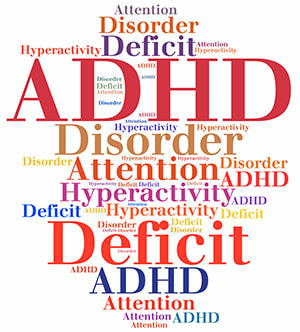"What's going on?" "How do I cope?" "How else could I think about this situation?" and then, we have someone like Doris who reached out and talked about how her life was destroyed by her mentally ill mother who, apparently, suffered from Munchhausen's-by-Proxy Syndrome, which we now call Factitious Disorder (meaning made up/fake).
Two weeks ago, I received a question from Leo who asked about his wife's disturbing behavior, I explained the potential for his wife to have Factitious Disorder and that he needed to take immediate and serious steps to protect his son.
For Doris, the reality of "why" her life has turned out "this way" slapped her in the face. She finally had a name for "what" happened her.
Doris realized that her mother likely suffered from the same condition as Leo's wife and the abuse continued until Doris rose up and advocated for herself as best she could in those times. The damage had been done.
Many unnecessary surgeries left Doris unable to have children and the significant amount of school she missed, left her uneducated. Her life has very much been "less than".
I encouraged her to get help for Posttraumatic Stress Disorder, her rage, depression and bereavement. She has a long way to go. Despite all of this, her attitude, as a 70-year old woman, is to live the best life she has left. Such inspiration.
Here are some terrific photos!
Check out this link to learn more. This machine provides low-level electrical stimulation to the areas of the brain associated with attention, emotional regulation, and behavior.
The diagnoses of ADHD have increased by 30% over the past 8 years. Too many very young kids, including toddler-age, are spending an excessive amount of time in front of digital devices and these activities may be rewiring their brains and not in a good way.
It's mindless. My mind wanders throughout the universe when I'm cleaning.
And then, there's the satisfaction. Oh yeah, I know that it'll last for about 10 seconds, but I work with people, kids, specifically, and they're never done. There's always another thing and another and another. Ugh.
What I might be experiencing that gives me such satisfaction is the increase in brain volume, or at least the joy that I'm not losing it, by doing a bit of cleaning every day. Researchers have learned that the more vigorous the exercise, the more brain volume you retain.
After the age of 60, we lose, on average, 0.2% of our brain volume every single year. And the more brain volume you lose, the more you're a candidate for Alzheimer's and other dementias.
So, vacuum, scrub, dust, wash, whatever, just move it! Here's a little more info for ya'. You'll be clean and your brain will weigh more. Winner, winner!

Why are firefighters warning you to never leave bottled water in your car? Because if it's hot enough outside and the bottle is positioned "just so", you can set your interior on fire...
Plus, when the plastic gets hot, it can leach dangerous chemicals into the water.
It's always something...control the controllable.

If so, you may end up drinking heavily at night. Why? Because you have so little control over the quality of life you have for most of the day and because you're suppressing how you really feel, that you self-medicate.
Be careful. This combo may cause you to end up looking like this chick.

Fonts that enhance reading for those with dyslexia and impact reading speed and word recognition are Helvetica, Courier, Arial Verdana and Computer Modern Unicode or CMU which is open source and downloadable, as well.
During these early stages of reading, you may want to scan some of his educational materials and convert them into one of these fonts. Observe how he handles the materials. Which font works best for him?
You may also want to give him a bigger font for now and perhaps, make it bold. Let's do what we can to bypass some of the visual processing weaknesses and disorders seen in those with dyslexia.
Because I AM NOT certain that you have the right person to work with your son, you might want to seek out a board-certified educational therapist to work with him. Go to this website and learn more about the training and roles of an educational therapist and locate one in your area.
As well, consider the International Dyslexia Association for resources and self-education. If you don't know which type of dyslexia he has, dysphonetc, dyseidetic or both, reach back to the person who did the diagnosis and ask.
If he has not had a comprehensive evaluation, get one. Dyslexia can also appear as ADHD or other problems. Make sure he has an assistive technology assessment to determine the devices and software that will allow him to "learn around" the dyslexia.
Since dyslexia is a neurological condition, it's important to understand which learning functions it impacts and the way it affects them.
And, have his reading, math and written expression evaluated every year (might be about 6 tests) to make sure he is keeping pace the the curriculum (that's the stuff that's taught!).
I mentioned the Kurzweil 3000 system as a possible assistive technology resource to support him. Check it out here.
Finally, Dr Dave's AT Lab. Dr. Dave offers the latest in resources and explains their usage. His work is presented within the website for the International Dyslexia Association and can be accessed here. You can go to IDA's homepage and search for Dr. Dave's AT Lab to get his latest information as well as all of the archived material.
Claudia
Join me on Facebook at Dr. Claudia McCulloch.
At DrClaudia.net, click on the "Ask Me" button and send me a question.
Sign up for the Sunday newsletter. Don't miss a thing!






